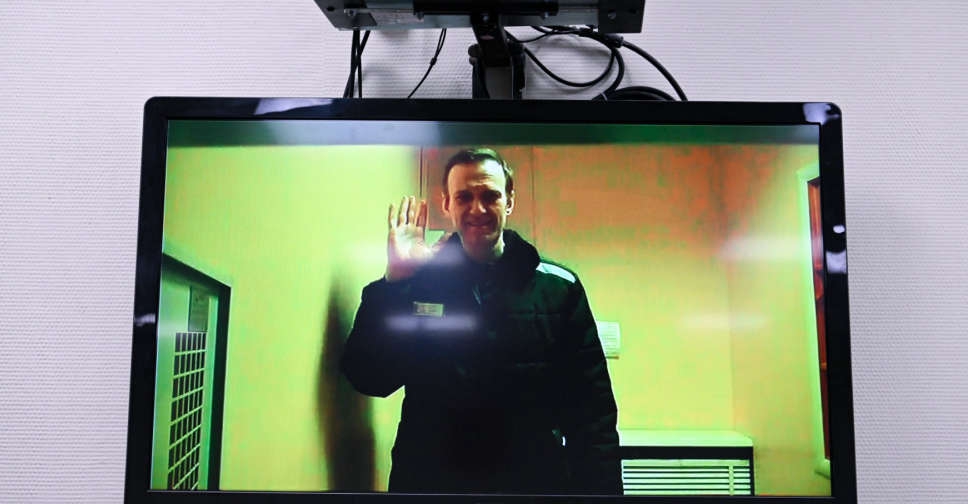
Jailed Russian opposition leader Alexei Navalny said on Wednesday that investigators had opened what he called an "absurd" terrorism case against him that could see him sentenced to an additional 30 years in jail.
Navalny, a former lawyer who rose to prominence more than a decade ago by lampooning President Vladimir Putin's elite and alleging large-scale corruption, is serving combined sentences of 11-1/2 years for fraud and contempt of court on charges that he says were trumped up to silence him.
He appeared in a Moscow court via video link on Wednesday as part of a case into extremism, Reuters reporters at the court said.
"They have made absurd accusations, according to which I face 30 years in prison," he said in a statement published on social media by his supporters.
"I insist that the attempt to close the process is an attempt not just to prevent me from getting acquainted with the case, but it is also an attempt to make sure that no one finds out about it," he said.
Navalny said it was absurd to argue he had committed terrorism while in prison. He said the case would be tried by a military court.
He earned admiration from Russia's disparate opposition for voluntarily returning to Russia in 2021 from Germany, where he had been treated for what Western laboratory tests showed was an attempt to poison him with a nerve agent in Siberia.
Navalny says he was poisoned in Siberia in August 2020. The Kremlin denied trying to kill him.
His supporters cast him as a Russian version of South Africa's Nelson Mandela who will one day walk free from jail to lead his country.
Russian authorities view him and his supporters as extremists with links to the United States' CIA intelligence agency, which are seeking to destabilise Russia. They have outlawed his movement, forcing many of his followers to flee abroad.
His campaigning organisations have been banned in Russia as "extremist".
This month Russian investigators formally linked Navalny supporters to the murder of Vladlen Tatarsky, a popular military blogger and supporter of Russia's military campaign in Ukraine, who was killed by a bomb in St Petersburg. Navalny allies have denied any connection to the killing.
Separately on Wednesday, Russian investigators said that 11 people had been put on an "international wanted list" in a case linked to Navalny, state-owned news agency TASS reported.

 UK inquiry finds 'chilling' cover-up of infected blood scandal
UK inquiry finds 'chilling' cover-up of infected blood scandal
 Iranian President Raisi killed in helicopter accident, state media says
Iranian President Raisi killed in helicopter accident, state media says
 ICC prosecutor seeks arrest warrants for Israeli, Hamas leaders
ICC prosecutor seeks arrest warrants for Israeli, Hamas leaders
 Assange given permission to appeal against US extradition
Assange given permission to appeal against US extradition
 Israel intends to broaden Rafah sweep, Defence Minister tells US
Israel intends to broaden Rafah sweep, Defence Minister tells US




